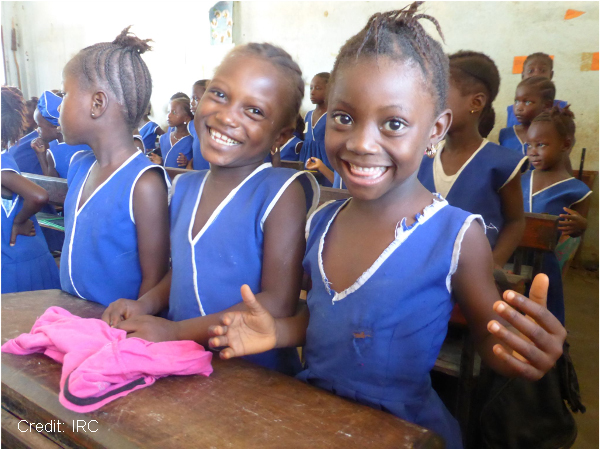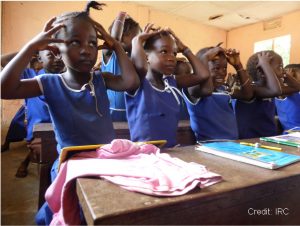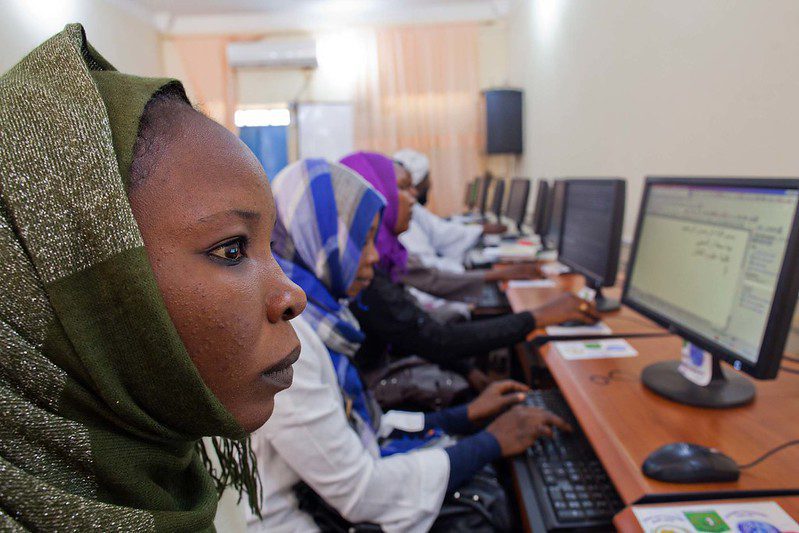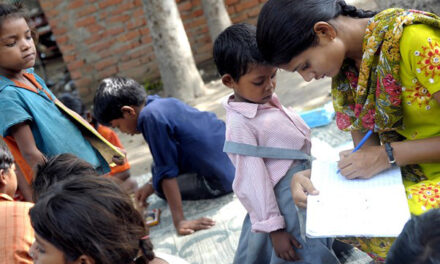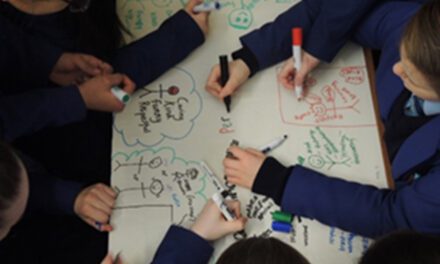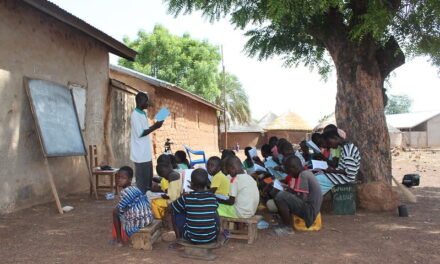This blog was written by Alexander Tucciarone, Education Content Advisor at International Rescue Committee, and Douha Boulares, Budget & Communication Associate at NYU Global TIES for Children.
What can be done to improve learning outcomes for the millions of children growing up in conflict-affected societies and enrolled in under-resourced school systems? How can the global community safeguard the right of every child, including those in crisis settings, to a quality education and position them to heal, learn and thrive? What are the best interventions that achieve the greatest outcomes for the most children in humanitarian contexts?
Building the evidence needed to answer these questions is an increasingly urgent task. There are currently an unprecedented number of refugees and other displaced people worldwide, and more than half of all refugees are children. As their ranks swell, these children and their families are remaining displaced for longer periods than in the past and most live in low- to middle-income host countries. Those who enroll in local schools often attend under-resourced public school systems. These factors combine to create the looming crisis of millions of children around the world entering adulthood without the literacy, numeracy and social-emotional skills needed to lead stable and productive lives.
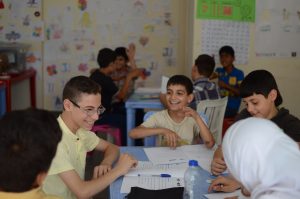
Across the Bekka in Lebanon, the IRC is helping Syrian refugee children like 14-year-olds Yusef and Hamza struggling in the Lebanese public school system
Recent studies from stable contexts suggest that school-based social-emotional learning (SEL) programming can be effective in improving outcomes for students. But rigorous evidence for this in fragile and crisis contexts remains limited. Recognising the gaps in evidence in emergency contexts and studying approaches to implementing SEL in these settings is fundamental to helping students achieve skills they need to succeed in school and beyond.
The research-practice partnership of International Rescue Committee (IRC) and NYU Global TIES for Children (NYU-TIES), through the Education in Emergencies: Evidence for Action initiative (3EA) investigated these challenges. Specifically, 3EA rigorously researched what works, how, for whom, under what conditions, to achieve literacy, numeracy and SEL skills for students in Lebanon, Niger and Sierra Leone. That partnership designed and conducted actionable, policy-relevant research on a set of educational programmatic components – built around IRC’s Healing Classrooms approach — that aim to enhance the academic learning and holistic development of children in crisis-affected contexts. These components largely focused on implementing social-emotional learning-based remedial tutoring programmes for children enrolled in formal schools.
For each context, 3EA provided academic support to children who were enrolled in public schools through social-emotional learning-based academic support. We studied the impacts of tutoring along with short activities designed to target specific social and emotional skills in Lebanon and Niger. In Sierra Leone, we rigorously researched the implementation of that programme.
Evidence and lessons learned from this research-partnerships include:
- Across multiple contexts, the Healing Classrooms approach to remedial tutoring is an effective strategy to improve children’s literacy and numeracy skills.
- Healing Classrooms model was developed by the IRC and is focused on creating safe, nurturing and predictable learning environments for students who have experienced prolonged exposure to trauma and violence. These findings are explored in greater depth in a recently published Global Policy Brief.
- That brief complements our previous study in the Democratic Republic of Congo that shows the Healing Classrooms approach in formal schools is successful for improving literacy and numeracy skills of students.
- Combining Healing Classrooms tutoring with the skill-targeted SEL activity of Mindfulness provides a measurable boost to academic and some specific SEL outcomes for students when compared to students without access to Healing Classrooms
- Also explored in greater depth in the brief, Mindfulness is an activity that focuses on stress and emotion management and regulation through practices like deep breathing.
All too often, when the world is developing its response to a humanitarian crisis, those doing the planning treat education as an afterthought. While this is gradually beginning to change, educators and researchers working in crisis contexts are still forced to operate with very limited resources in the face of spiraling challenges.
The evidence built by 3EA provides crucial guidance on a more informed future in the humanitarian sector and a way to help ensure that the resources that are directed toward educating children and youth in these contexts are expended with the greatest and most positive impact possible.
To learn more about 3EA’s work educating children in crisis contexts, read:
- The Global Policy Brief
- Briefs focused on programs and research in Lebanon, Niger and Sierra Leone.

